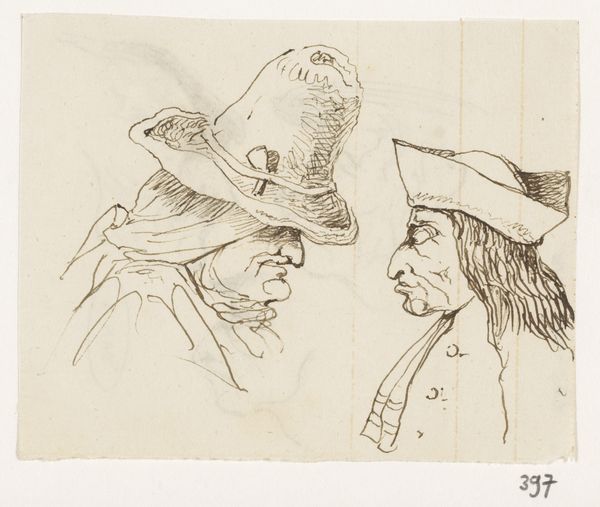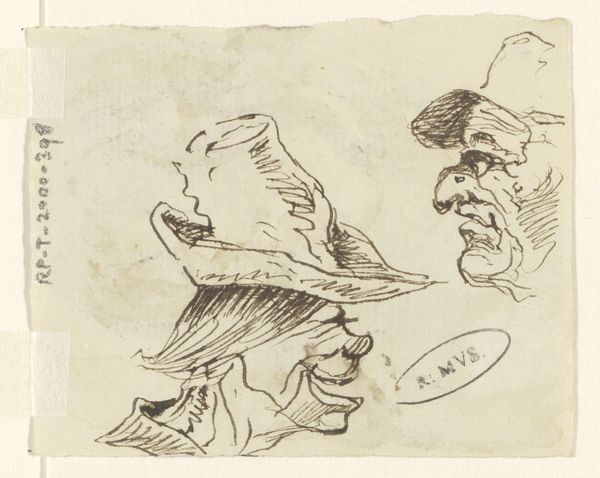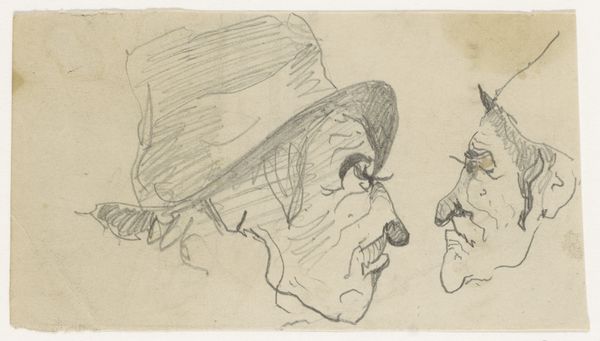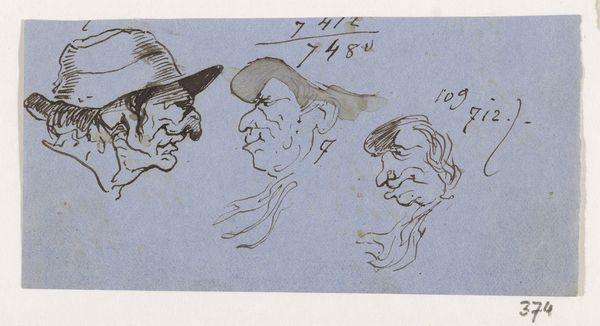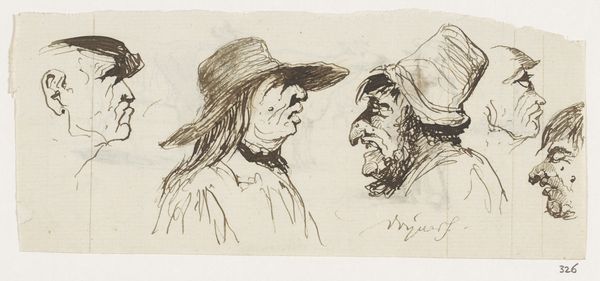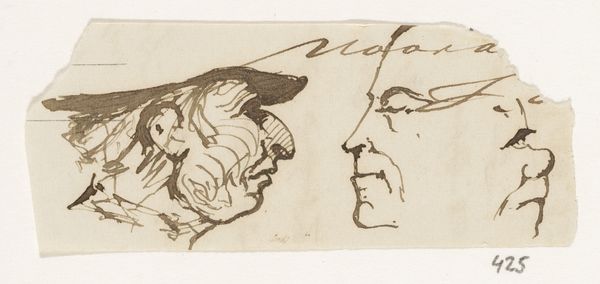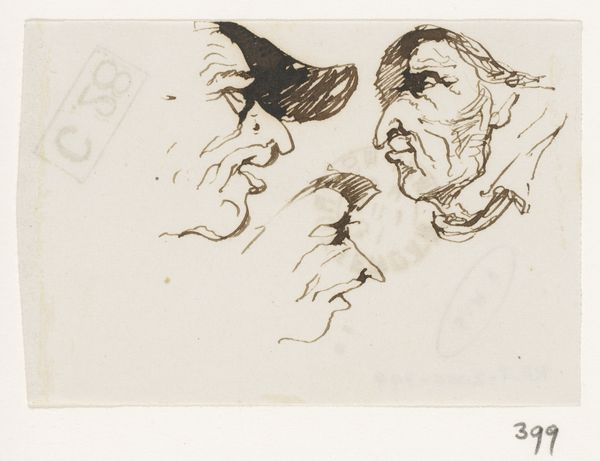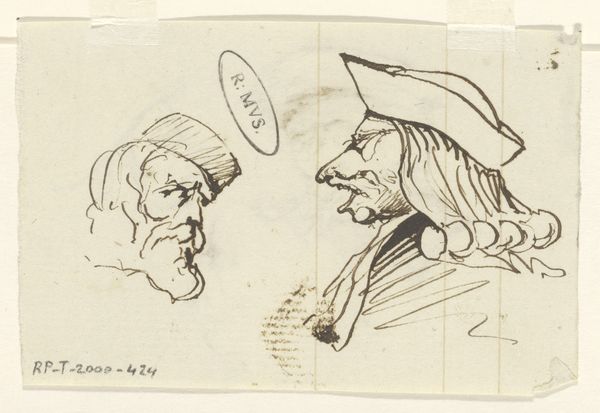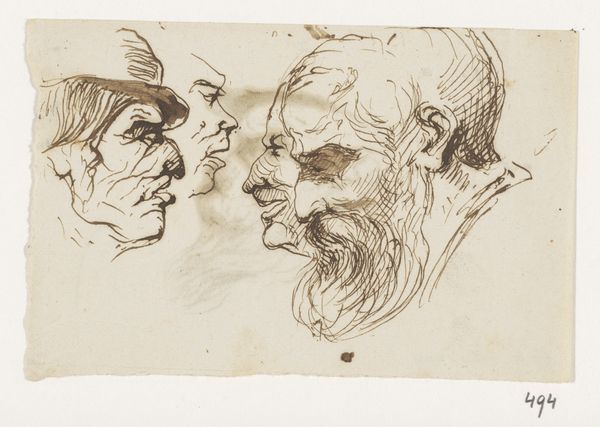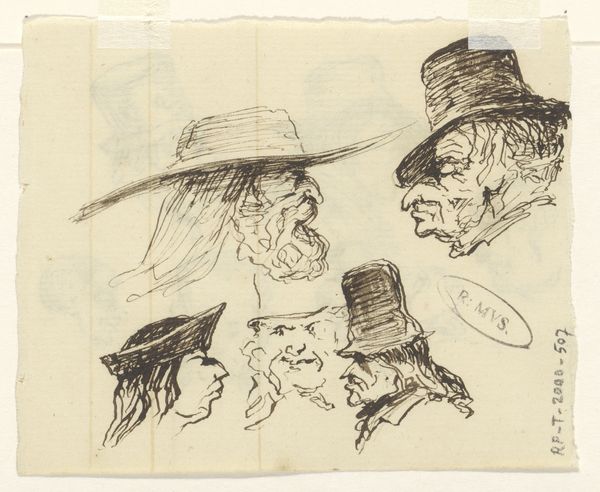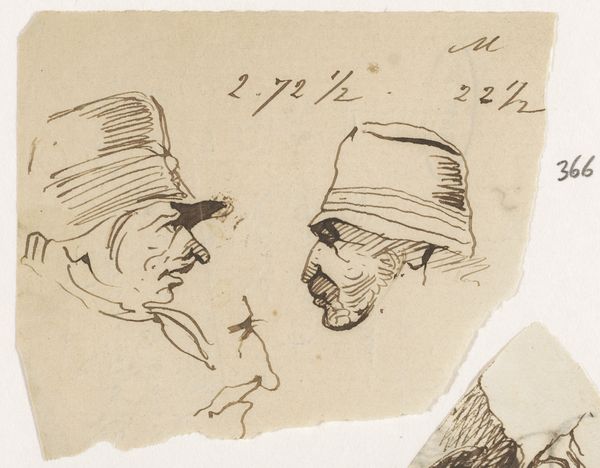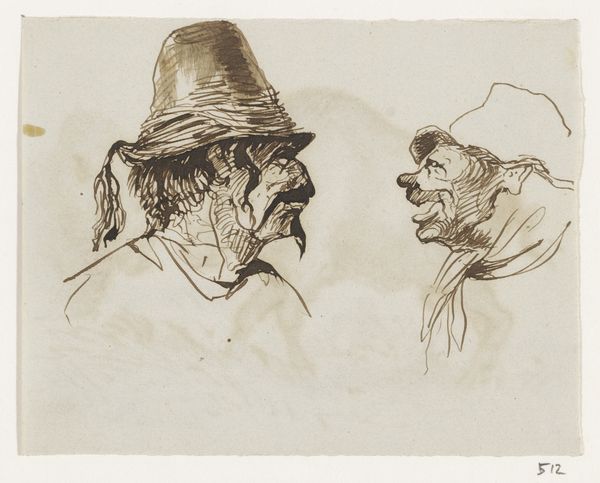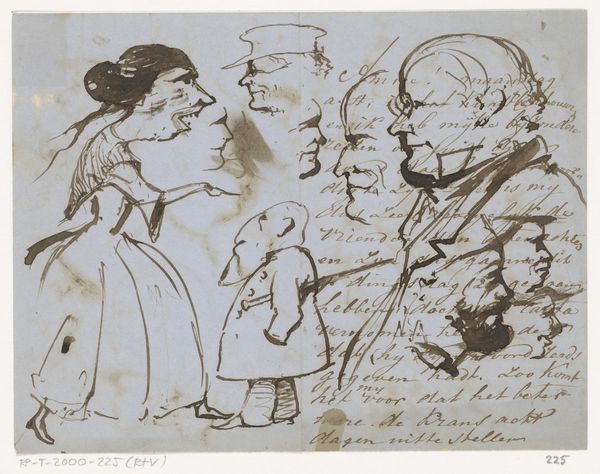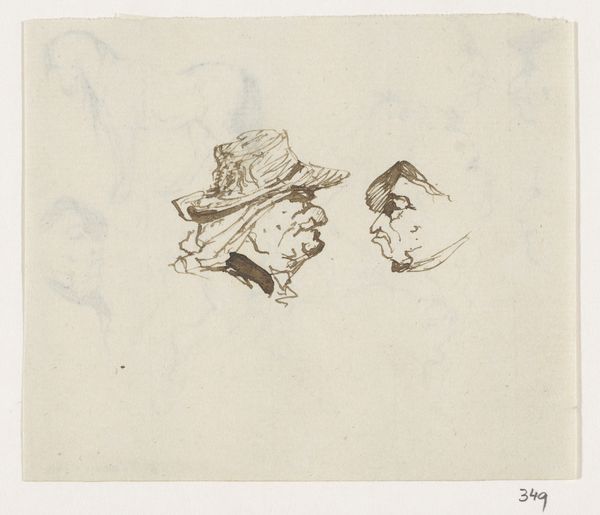
drawing, pencil
#
portrait
#
drawing
#
comic strip sketch
#
imaginative character sketch
#
personal sketchbook
#
idea generation sketch
#
sketchwork
#
ink drawing experimentation
#
pen-ink sketch
#
pencil
#
sketchbook drawing
#
genre-painting
#
storyboard and sketchbook work
#
sketchbook art
#
realism
Dimensions: height 57 mm, width 94 mm
Copyright: Rijks Museum: Open Domain
Johannes Tavenraat sketched these three heads using graphite, likely in the mid-19th century. Tavenraat was a Dutch artist known for his landscapes and genre scenes, which often depicted everyday life. These aren't idealized portraits; they’re studies of working-class men, capturing their weathered faces and distinctive expressions. The choice of subject and the style of representation speak to broader shifts in 19th-century European art, where there was an increasing interest in depicting the lives of ordinary people with a sense of realism. It's as if Tavenraat wanted to capture something authentic about these individuals, perhaps even challenging the traditional hierarchies of portraiture, which often focused on the wealthy and powerful. What do you feel when looking at these faces? Do they evoke empathy, curiosity, or perhaps even a sense of unease? This piece provides a glimpse into a specific time and place, inviting us to reflect on the complexities of representation, identity, and social class.
Comments
No comments
Be the first to comment and join the conversation on the ultimate creative platform.
